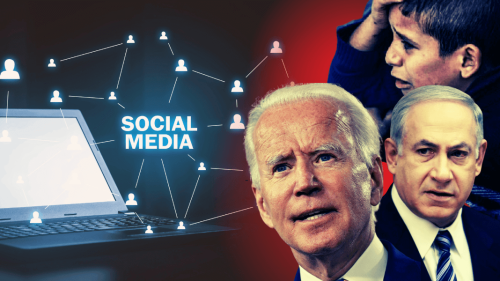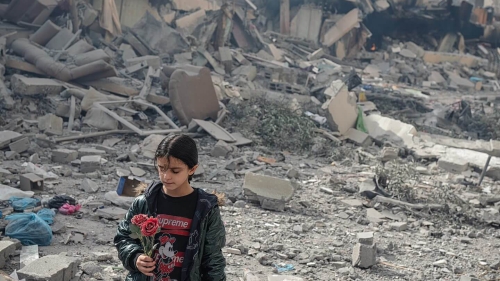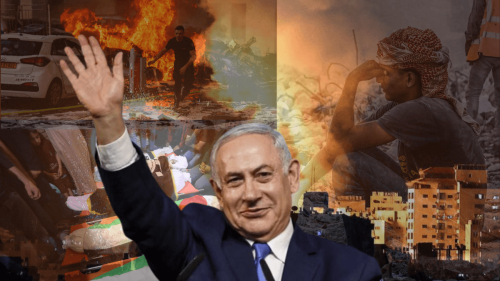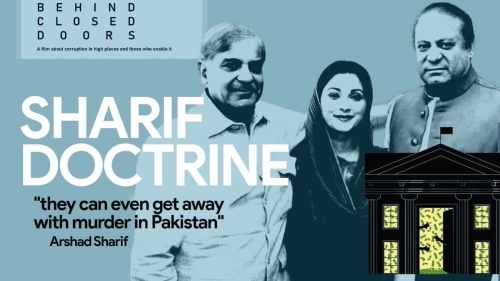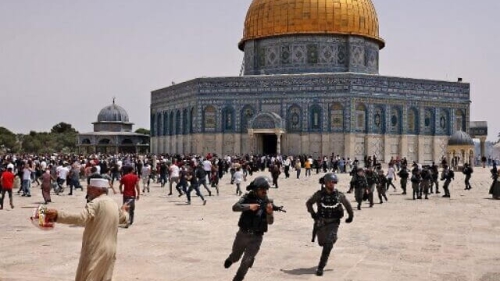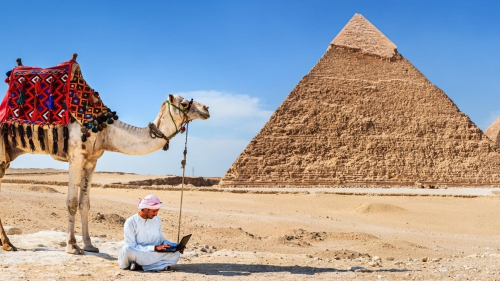Shouting Down the Israeli Ambassador: Boneheaded? Perhaps... Illegal? Not So Fast.
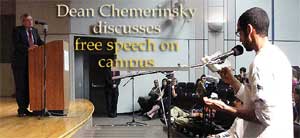 |
The outburst by eleven UC students against Israeli Ambassador Michael Oren has generated a firestorm of condemnation of their actions, including from UCI Law School Dean Erwin Chemerinsky, whose credentials as a defender of free speech rights are unassailable.
Quoting Justice Oliver Wendell Holmes, Dean Chemerinsky argued that "there was no right to falsely shout 'fire' in a crowded theater." Moreover, he rightly pointed out that government, including public universities, have the right to regulate speech on campus, particularly because freedom of speech would be "rendered meaningless if speakers can be shouted down by those who disagree... There is simply no 1st Amendment right to go into an auditorium and prevent a speaker from being heard, no matter who the speaker is or how strongly one disagrees with his or her message."
A Heckler's Veto?
As well articulated as this argument is, do the comparisons used actually reflect the situation at hand? Is vigorous and organized, yet clearly limited, protest really the equivalent of "shouting fire in a crowded theater"? Did the students ultimately prevent Ambassador Oren from being heard? Is there really no room for "disruption" of any length or style at a talk by an Ambassador of a country embroiled in a contentious decades long conflict?
In fact, the students actions, and the reaction by the audience, university, and police, are far more complicated than they might appear on the surface and challenge the assumption by most people that they crossed a clear boundary of acceptable protest and deserve whatever fate is handed to them by the University and even the District Attorney. Several issues in particular raise troubling questions surrounding how the university police, and administration more broadly, handled the event and its aftermath.
First, there is the question of the level of disturbance caused by the students. Ambassador Oren was scheduled to speak and answer audience questions for 1 1/2 hours. The protests by the students were clearly aimed to disrupt his speech, but it's just as clear that they were not trying to scuttle it. Each outburst seems to have lasted under one minute, after which the student left voluntarily. In total, eleven out of 90 minutes were taken up by the protests. Even with the twenty minute break that Oren took during the protest he was, as Chancellor Drake pointed out in his condemnation of their actions the next day, able to finish his speech. There was also time for audience questions had he chosen to take them.
These facts raise the question of whether, as many university officials and commentators, including Dean Chemerinsky, have argued, the actions of the students constituted a "heckler's veto" and therefore crossed the line between acceptable and prohibited protest. To begin with, the use of this term is questionable, as it has, as a rule, referred not to protesters shouting down a speaker at a gathering but rather to government or other officials canceling or prohibiting a speech or gathering out of fear of the protests it might generate.
Even if we accept the implications of the term, the assertion that the students' actions constituted a veto over Ambassador Oren's right to be speak is debatable. If 40 or some similarly large number of students engaged in the action rather than 11, Ambassador Oren would have been unable to complete his speech and the protest would have thereby crossed the line of acceptable speech. But this was not the case. However uncivil or even obnoxious one might consider the protest, by design (rather than because of the actions of police or university officials to stop them) they did not continue long enough to prevent him ultimately from being heard.
Given the heated nature of Israeli-Palestinian debates on campuses today, one could look at the rough and tumble of the students' protest here and, quoting a basketball analogy often used in the last two minutes of an important game, declare: "No harm, no foul," or at least not a flagrant one.
It is true, as Dean Chemerinsky notes in his Oped, that universities have the right to limit the free speech rights on campus to a greater extent than is normally allowed in the public sphere. But at least at UCI there are no firm guidelines on what those limits are. When I enquired I was referred by a UCI spokesperson to the UCI Dean of Students' Handbook on Campus Policies. But that document offers little guidance to judge whether the protests against Oren's speech crossed the line. Section 30.00 (http://www.dos.uci.edu/conduct/uci_policy.php#30.00), which deals with free speech, does not define any limits to speech beyond the broad statement that the "University is committed to assuring that all persons may exercise the constitutionally protected rights of free expression, speech, assembly, and worship," and that protests "must not, however, interfere with the University's obligation to protect rights of all to teach, study, and fully exchange ideas."
Without a clear ban in place beforehand on the type and style of protest in which they engaged, it is hard to see how they could fairly be subject to severe punishment by the university for their protest, never mind arrest and potential prosecution.
Indeed, this criminalization of dissenting speech is the most troubling part of the whole affair. It is impossible for me to see how university police or the administration can justify arresting these students after they voluntarily left the room and made no efforts to return. Who made this decision? What reading of which law where they using to determine that students who make short protests and voluntarily leave an auditorium can be arrested?
The students clearly constituted no threat to the speaker or the audience--in fact, the video of the event clearly demonstrates that the audience engaged in far more obnoxious behavior than the students, using racial/religious epithets against them and even accosting several of them. Despite the students' pointing this out to police at the time, no audience members were removed from the hall, let alone arrested.
Moreover, previous campus protests, such as against UC Berkeley law professor John Yoo, have resulted in students being removed from the auditorium by police after shouting him down during a talk, but no further disciplinary or legal actions were taken against them. Together these facts raise serious issues of equity in the application of already vague university regulations and laws.
And even with the arrest, it is unfathomable that the District Attorney would use already limited government resources to prosecute the students for their actions. Yet to date there is no indication that they will not face prosecution. But on what basis?
An Undue Limitation on Legitimate Protest?
University officials sent an email to the entire student body in the aftermath of the event which warned students that any such protests would be considered illegal and create "a very serious situation." Specifically, they informed them that "if anyone 'without authority of law, willfully disturbs or breaks up any assembly or meeting that is not unlawful in its character' they can be charged with a misdemeanor under California Penal Code 403. Other penal codes can apply as well."
I am proud that my colleagues in the UCI administration have fought long and hard to protect academic freedom on campus against concerted efforts to diminish it. Yet while it's not the intention of the university, it seems to me that this email could have a chilling effect on free speech, particularly because there is no attempt to define what "willfully disturbs" an event means. This opens to the door for arresting students for even the slightest disruption of an event.
Imagine how a 19-year old student would react to being told that he can go to prison and face expulsion from the university merely for engaging in vigorous protest against a speaker who supports enforced genital mutilation of women, the execution of homosexuals or other unpopular policies. Or more to the point, who represented a state that engaged in these practices.
If you were that student, what would you do the next time someone was speaking at the university whose views you strongly disagreed with? Would you risk crossing an undefined line and thereby put your future in jeopardy, or would you stay silent? And what does this environment do to the university's role as a place where boundaries, ideas and actions can be explored? Some of the most creative and impactful protests in history have been extremely theatrical and disruptive. Should students be forbidden from exploring these forms of protest?
And it would seem professors are equally at risk. For example, if a pro-Hamas speaker was coming to campus and Jewish students came to me for advice on how to respond to him, I might well--before now--have suggested they do a die in at his talk. Put on paper masks of Israelis killed in suicide bombings and come to the front of the hall, say the name and date they were killed, and fall to the floor. Perhaps even have themselves carried out to emphasize the point.
Until now, I would have assumed that as long as this didn't prohibit him from finishing his talk and was non-violent, this would not only be acceptable, but also highly effective and even pedagogical. It would force those who blithely support the right to resist through terror to confront the faces of the victims the actions they support produce. Yet it would now seem that my advice might well be illegal, and lead my arrest, prosecution and even revocation of my tenure, along with the suspension or expulsion and prosecution of the students who staged the protest.
As important, this potential criminalization of dissenting speech is not just limited to highly contentious protests surrounding Israel. Students have also been arrested and face harsh disciplinary action across UC for engaging in protests on hot button but legitimate issues. Rather than repressing dissent, we should be helping students to find the most creative ways to express it within commonly understood bounds. But making a habit of arresting students for vigorous but non-violent and ultimately limited protest makes this goal that much harder to achieve.
The Missing Ingredient: Power
There is a final issue involved in these protests that Dean Chemerinsky's article did not touch upon, and that is the utter disparity in power between the students, and the views they represent, and Ambassador Oren and the government he represents. There is little doubt that the Law School and Political Science Department, who co-sponsored, rightfully saw his presence as a chance to engage an important actor on issues of concern to the UC community.
However, from the Israeli side Ambassador Oren's appearance at UCI was part of an extremely sophisticated, well funded and self-described "propaganda" campaign--known by the Hebrew term "hasbara." directed by the Israeli government and major American Jewish organizations with the goal of presenting Israel in the most positive light possible on campus.
Oren was speaking at UC Irvine not as an academic presenting research but as an official representative of a government, one of whose jobs is to convince the public at large of the justice of his government's policies. That is one of the most important jobs of an ambassador, but it is based on a very different set of ground rules than that of a scholarly presentation.
In fact, the outrage demonstrated by many (but by no means all) members of the Jewish community at the protests is disingenuous. The World Union of Jewish Students and the Education Department of the Jewish Agency, a quasi-governmental organization with strong ties to most major Jewish organizations, sponsored the publication in 2002 of a 131 page manual for Israel advocacy titled the Hasbara Handbook, which specifically lists as the first of "seven basic propaganda devices" available for use by activists "name calling," and declares that "for the Israel activist, it is important to be aware of the subtly different meanings that well chosen words give. Call 'demonstrations' 'riots', many Palestinian organizations 'terror organizations', and so on."
It would seem that for members of these groups now to call for the expulsion of the so-called "Irvine 11" and threaten to stop donating money to UCI unless harsh measures are taken is a bit like the pot calling the kettle black.
A Malfunctioning Public Sphere
In the United States the normative understanding of the public sphere is that everyone has an equal voice and disparities of power and access are naturally checked at the door, allowing all sides on a debate "equal" footing on which to state their case. But the reality, particularly when it comes to debates around Israel, is far more constricted.
The context of the students' rowdy, and to some "uncivil", protest has to be considered in judging their actions. Ambassador Oren represents a state that has engaged in a 43-year long occupation and settlement enterprise, as as part of this process committed large scale and systematic violations of the most basic human rights of Palestinians, from land expropriations to extra-judicial killings to numerous war crimes, all of which are amply documented by Israeli Jewish human rights organizations as well as by the US State Department, United Nations and other international organizations.
Yet despite this record, Israeli officials routinely receive warm official welcome on college campuses across the United States, something its hard to imagine happening with representatives of countries with similar human rights records. Meanwhile, back in the Occupied Territories, not only Palestinians, but foreign activists and even Israeli Jews are routinely arrested, beaten, tear-gassed and even shot and killed merely for engaging in non-violent protests against the on-going expropriations of Palestinian land, demolition of homes, uprooting of trees and orchards, and other human rights violations. The students at UCI are fully aware of these facts because in the last two years they have gone out of their way to bring Jewish and Israeli speakers to campus who've experienced them first hand.
Put this next to the deference generally shown to Israeli officials, the well-documented unwillingness of the mainstream media to challenge Israeli policies or explanations with any regularity, the political clout of pro-Israel groups, and the powerful Hasbara network on campuses, and their rowdy, uncivil protest suddenly makes more sense.
Indeed, against such a powerful bloc of forces, we can ask how already marginalized Muslim students should be expected to protest against the Ambassador's appearance. We can take a less politicized example and ask how marginalized students should be expected to protest crippling tuition increases even as the quality of their educations diminishes against a powerful President who has declared emergency powers and effectively neutralized the long-cherished notion of "shared governance."
How polite should students really be expected to be in this situation? Is demanding that they be 'civil' and 'respectful' itself an infringement on their free speech rights in a situation where speakers who represent powerful and normally untouchable interests or groups--whether foreign governments or the UC Regents, for that matter--routinely deflect troublesome questions, change the subject or in some cases respond with very narrow and even inaccurate answers that the audience has little chance to challenge.
In short, are there situations when marginalized voices have little recourse accept to push the boundaries of polite debate in order to get their messages heard? And if in doing so they ruffle feathers, upset audience members and perhaps even exercise extremely poor tactical and political judgment in their choice of strategies--as the students in this case have so clearly done, since they both deflected attention away from their cause and played into deeply ingrained stereotypes of irrational and unreasonably angry Muslim men--should the University be punishing them and the state prosecuting them?
My hope is that the members of the UCI community can use this event as a teachable moment, coming together as a campus more clearly to define the limits of acceptable protest, to understand the realities behind the passions displayed by the Irvine 11, and to help figure out how to bridge the still gaping chasm that separates Muslim and Jewish students on campus and the communities they represent. Turning UCI into a First Amendment battle ground will likely not achieve these ends and instead will undermine the vigorous and sometimes rowdy given and take that is essentially to the preservation of free speech and academic freedom in the University
Mark LeVine is professor of modern Middle Eastern history at UC Irvine and author or editor of numerous books on the history of Israel and Palestine.
Topics: Government And Politics, Occupation, Schools Values: Education Channel: Opinion
Views: 1801
Related Suggestions








